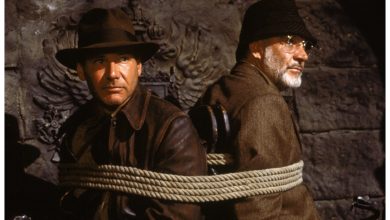Why Did They Kill M in Skyfall? Exploring the Fate of a Beloved Character

The death of M in the film “Skyfall” left a profound impact on the James Bond franchise and its dedicated fan base. As the head of MI6 and Bond’s trusted superior, M had been a constant presence throughout multiple films. However, the decision to kill off such an iconic character raised questions and sparked discussions among fans worldwide. In this article, we will explore the reasons behind M’s demise, the narrative impact it had on the franchise, and the legacy it left behind. From the emotional depth it brought to the storyline to the rejuvenation of the Bond universe, the death of M in “Skyfall” marks a significant turning point in the history of the series.
Key Takeaways
- The filmmakers made a deliberate narrative choice to kill off M in “Skyfall” to bring closure and evolution to the character’s story arc.
- M’s death had a profound impact on James Bond’s character, forcing him to confront his mortality and reevaluate his loyalty to MI6.
- The loss of M paid tribute to Judi Dench’s portrayal of the character and paved the way for a new era with a new M played by Ralph Fiennes.
- M’s death had significant plot implications, rejuvenating the franchise and allowing for fresh storytelling and new dynamics.
- Audience reactions to M’s death were mixed, but the success of “Skyfall” demonstrated that the decision did not hinder the franchise’s popularity.
In the James Bond film franchise, the character of M has always played a crucial role as the head of MI6 and Bond’s superior. However, in the 2012 film “Skyfall,” M, portrayed by Judi Dench, meets a tragic end. This unexpected turn of events left many fans wondering why the filmmakers decided to kill off such an iconic character. In this article, we will delve into the reasons behind M’s demise and the impact it had on the franchise.
M’s Fate in “Skyfall”: Exploring the Narrative Decision
The decision to kill off M in “Skyfall” was a deliberate narrative choice made by the film’s director, Sam Mendes, and the screenwriters. The primary motivation behind this decision was to bring a sense of closure and evolution to the character’s story arc. M had been a central figure in the Bond series for several films, and her death provided a dramatic and emotional climax for both the character and the storyline.
Emotional Impact and Character Development
M’s death in “Skyfall” served as a catalyst for character development, not only for James Bond but also for other key characters in the film. It forced Bond to confront his own mortality and reflect on his loyalty to MI6. Furthermore, the loss of M added an emotional depth to the story, intensifying the audience’s connection to the characters and their respective journeys.
Legacy and Tribute to Judi Dench
Judi Dench had portrayed the character of M in the Bond franchise since 1995’s “GoldenEye.” Her portrayal had become iconic, and her presence was synonymous with the role. Killing off M in “Skyfall” allowed the filmmakers to pay tribute to Dench’s contribution to the series while also paving the way for a new era of Bond films with a new M, played by Ralph Fiennes.
Plot Implications and Rejuvenation of the Franchise
The death of M in “Skyfall” had significant plot implications for future Bond films. It marked a turning point in the series, providing an opportunity for fresh storytelling and a departure from the established formula. Bond’s journey without M as his guiding force opened up new narrative possibilities, allowing the franchise to explore different dynamics and challenges for the beloved secret agent.
Audience Reaction and Critical Reception
The decision to kill off M in “Skyfall” generated mixed reactions among audiences and critics. While some praised the boldness of the narrative choice and its emotional impact, others expressed disappointment at the loss of such a beloved character. Nevertheless, the film was a commercial and critical success, proving that the decision to kill off M did not hinder the franchise’s popularity.
FAQ
1. Why did the filmmakers decide to kill off M in “Skyfall”?
The filmmakers made the decision to kill off M in “Skyfall” primarily to bring closure and evolution to the character’s story arc. M had been a central figure in the Bond series for several films, and her death provided a dramatic and emotional climax for both the character and the storyline. It allowed the filmmakers to explore the impact of her demise on James Bond and other key characters, forcing them to confront their own mortality and reflect on their loyalty to MI6. By making this narrative choice, the filmmakers aimed to bring a sense of emotional depth and character development to the film.
2. How did M’s death impact James Bond’s character?
M’s death had a profound impact on James Bond’s character. It served as a catalyst for his personal growth and forced him to confront his own vulnerabilities and mortality. Bond had always been portrayed as a resilient and invincible secret agent, but M’s death shattered that perception. It made him question his loyalty to MI6 and reevaluate his role as a spy. Bond’s journey without M as his guiding force allowed him to evolve as a character, becoming more introspective and emotionally connected. Her death served as a pivotal moment for Bond’s development and added complexity to his character in subsequent films.
3. Did M’s death affect the overall storyline of the Bond franchise?
Yes, M’s death in “Skyfall” had significant implications for the overall storyline of the Bond franchise. It marked a turning point and provided an opportunity for fresh storytelling. Bond’s journey without M as the head of MI6 opened up new narrative possibilities, allowing the franchise to explore different dynamics and challenges for the beloved secret agent. It also created a sense of uncertainty and rejuvenation, as Bond had to navigate a world without his trusted mentor and guide. M’s death signaled a departure from the established formula, injecting new energy into the franchise and paving the way for future installments with a different dynamic and direction.
4. How did the audience react to M’s death in “Skyfall”?
The audience reaction to M’s death in “Skyfall” was mixed. Some viewers praised the boldness of the narrative choice and its emotional impact. They appreciated the depth it brought to the story and the character development it spurred for Bond and other key characters. However, there were also those who expressed disappointment at the loss of such a beloved and iconic character. M had been a staple of the Bond series for many years, and her absence was felt deeply by some fans. Despite the mixed reactions, “Skyfall” was a commercial and critical success, proving that the decision to kill off M did not hinder the franchise’s popularity.
5. How did M’s death pay tribute to Judi Dench?
M’s death in “Skyfall” served as a fitting tribute to Judi Dench’s contribution to the Bond franchise. Dench had portrayed the character of M since 1995’s “GoldenEye” and had become synonymous with the role. Killing off M allowed the filmmakers to honor Dench’s legacy and recognize her significant impact on the series. It provided a poignant and emotional farewell to the character she had brought to life for many years. By giving M a heroic and dramatic exit, the filmmakers ensured that Dench’s portrayal would be remembered as an integral part of the Bond universe, while also setting the stage for a new era with a new M portrayed by Ralph Fiennes.
6. Did M’s death affect future Bond films?
Yes, M’s death had a lasting impact on future Bond films. It marked a significant plot development that set the stage for new storylines and character dynamics. Bond’s journey without M as his superior opened up fresh narrative possibilities, allowing the franchise to explore different challenges and relationships. The loss of M created a void that needed to be filled, introducing a new M portrayed by Ralph Fiennes. This transition brought a different dynamic to the series, with a new character at the helm of MI6 and Bond navigating a changed landscape. M’s death served as a catalyst for the rejuvenation and evolution of the franchise.
7. Did killing off M in “Skyfall” affect the popularity of the Bond franchise?
No, killing off M in “Skyfall” did not hinder the popularity of the Bond franchise. Despite the mixed reactions from some fans, the film was a commercial and critical success. It grossed over $1.1 billion worldwide and received acclaim for its storytelling, performances, and emotional depth. The decision to kill off M demonstrated the willingness of the filmmakers to take risks and evolve the beloved spy saga. It showcased the franchise’s ability to adapt and keep audiences engaged, proving that even a major character’s death could enhance the narrative and appeal of the Bond series.
8. Were there alternative options considered for M’s fate in “Skyfall”?
While specific details about alternative options are not widely known, it is likely that the filmmakers considered various possibilities for M’s fate in “Skyfall.” They would have explored alternative narrative paths to bring closure and evolution to the character’s story arc. Ultimately, the decision to kill off M was made to create a powerful and emotional climax, providing a significant impact on the story and characters. It allowed the filmmakers to take the Bond franchise in a new direction while honoring the legacy of the character.
9. Did M’s death lead to any significant changes in the Bond universe?
Yes, M’s death in “Skyfall” led to significant changes in the Bond universe. It marked a pivotal moment in the franchise’s history, signaling a departure from the established formula and paving the way for new storylines and character dynamics. The loss of M created a void in Bond’s world and forced him to reevaluate his role and loyalty. It also introduced a new M portrayed by Ralph Fiennes, bringing a fresh perspective to the series. M’s death served as a catalyst for change, rejuvenating the Bond universe and opening up new possibilities for future films.
10. Will M’s death be referenced in future Bond films?
While it is impossible to predict the exact course of future Bond films, it is likely that M’s death in “Skyfall” will be referenced in some capacity. The events of “Skyfall” had a profound impact on the characters and the overall storyline of the franchise. Given the significance of M’s character and her relationship with James Bond, it is reasonable to expect that her death will continue to influence the narrative and shape the development of future Bond films. Whether through direct references or subtle nods, M’s legacy and the impact of her death will likely remain a part of the Bond universe.
Conclusion
The decision to kill off M in “Skyfall” was a pivotal moment in the James Bond franchise. It brought closure to a beloved character’s story arc while creating emotional depth and character development. M’s death marked a turning point in the series, allowing for fresh storytelling and new dynamics for James Bond. The impact of M’s demise on the Bond universe cannot be overstated. From the legacy it left behind to the narrative possibilities it opened up, the death of M in “Skyfall” demonstrated the franchise’s willingness to take risks and evolve. As the series continues to captivate audiences, the memory of M’s character and the significance of her death will endure, shaping the future of the iconic spy saga.








